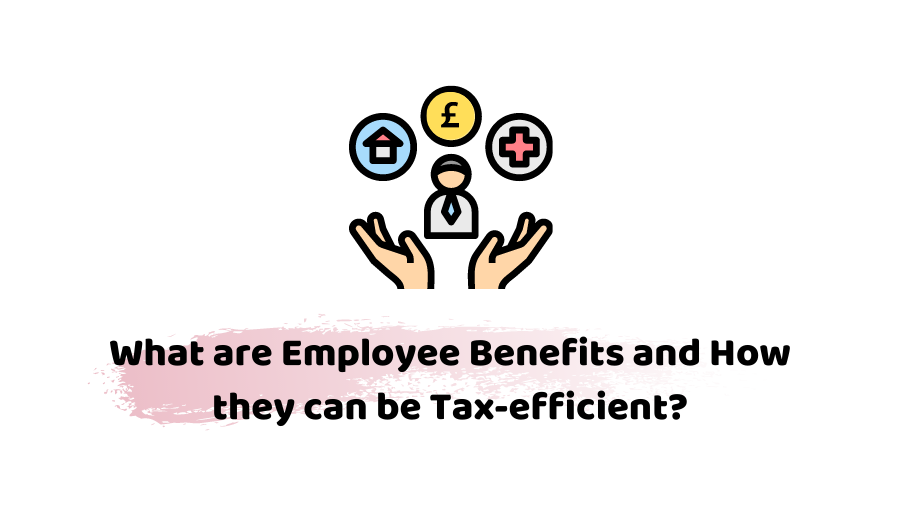Everyone loves benefits. They are essential for the overall success of your business. As they help employers to get the best talent for their business. But do you know, you have to pay tax and national insurance against the benefits you pay. Therefore, your payroll system needs to be effective for dealing with employee benefits. In this blog post, we’re going to discuss what are employee benefits and how you can reduce the taxes charged on them?
Various regulations have been passed to minimize the tax on employee benefits. Some of these benefits have a high tax rate. However, some benefits provide tax advantages.
Let’s delve deep into it!
What are Employee Benefits and PAYE:
The PAYE system ensures that the benefits are dealt with in a proper way and are reported in real-time when the employees’ earnings are issued.
The benefits that you receive as cash like bonuses and commission are taxable and they are treated similarly to the employee’s salary and wage. Anti-avoidable practices are employed for benefits that are immediately convertible into cash, making them friendly for the taxes.
These benefits are separately treated based on their types. Normal benefits are managed through the regular payroll deducting taxes and national insurance at the time of issuing salary. You need to register for payroll before the beginning of the tax year.
Afterward, you can add the benefits to the employees’ salary and pay the tax on benefits that are due using payroll. While using it, you don’t need to fill out the P11D form. However, you need to calculate the Class 1A National insurance that you have to pay and fill out form P11D(b).
Key Takeaway: You can find out the latest updates about PAYE on the HMRC website.
We can help you reduce and eliminate your tax-burden, contact us!
Taxable benefits and tax-efficient opportunities:
The benefits employees receive are taxable that is paid by the employers. In addition, employers are responsible for NICs, expenses, and benefits, in case, if they are not reported and taxed through payroll.
Despite it, there are a lot of other opportunities for tax planning. The benefits in the form of pension for employers’ are non-taxable. There are many other opportunities and schemes that provide reliefs on tax benefits and NI like small gifts, incentives plans, childcare benefits, and parking facilities, etc. Benefits that are compulsory for work are also tax-free like uniforms, eye-check, etc.
The business expense can be repaid without any tax and NI if there is a proper record that the employee is only compensated and he/she is not earning a profit.
You may benefit if you’re an employee having a variable income, as NICs are usually calculated on a weekly and monthly basis. For instance, if you receive all benefits in a single month and it raises your income to the upper earning limit for that period like £967 in a week or £50,270 for a year in 2021/22- your NI would be only charged 2% instead of 12%.
Meanwhile, contact us for a customized offer!
Tax-saving benefits for Owners and Directors:
There are certain rules to prevent directors to misuse their rights of tax-planning. The NICs of directors are calculated based on their annual earnings. In this case, there is no advantage for them in receiving bonuses rather than regular income.
But still, they can avail tax benefits on employers’ pension contributions. In addition, if you or your family manage more than 30% of the company, you cannot take advantage of share schemes.
If you’re a company owner, you hold a broader tax-planning authority, like taking benefits on entrepreneurs’ relief on capital gains, receiving payments on dividends and recruiting your spouse, etc.
For owners and directors, the first dividend income is tax-free that is up to £2,000. If it’s above this limit, the basic rate taxpayers are going to pay 7%. For higher rate taxpayers the rate is 32.5%. For the additional rate band, it is 38.1%.
Conclusion:
So, you have got an overview about what are employee benefits and how can one reduce the taxes levied on them? Therefore, as an employer, be careful about employee benefits and taxes. PAYE system is there for your aid while paying income tax and national insurance from the payroll. We hope you have got enough information about how you can get tax advantages being an employer, director, and owner.
If you need advanced support and advice from a professional, we have a team of certified chartered accountants in London for your help.
Feel free to reach out anytime!





















































